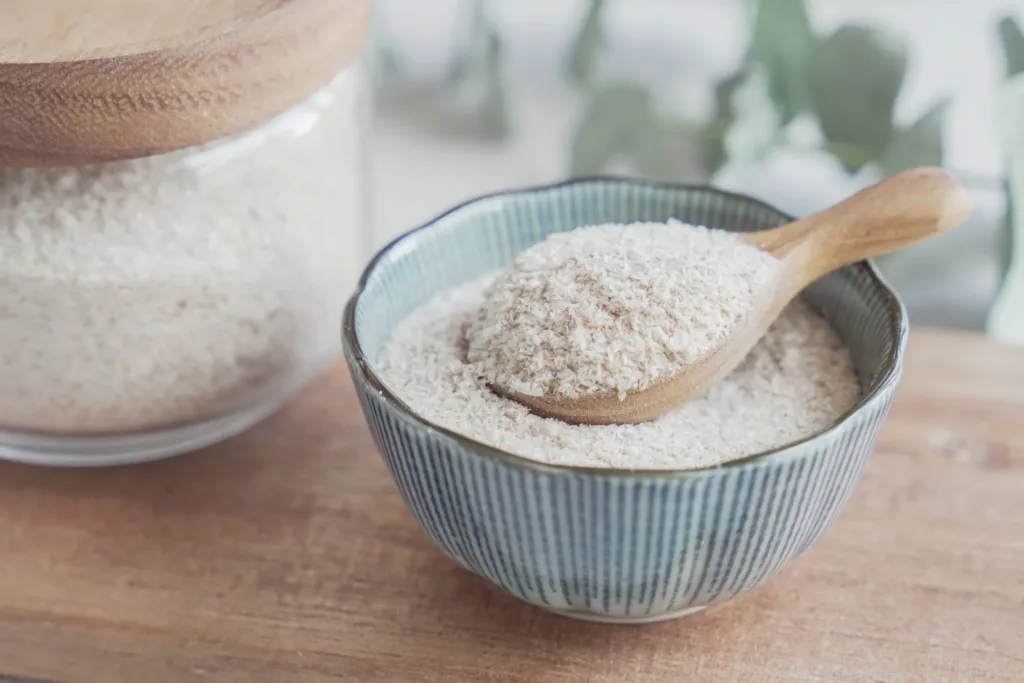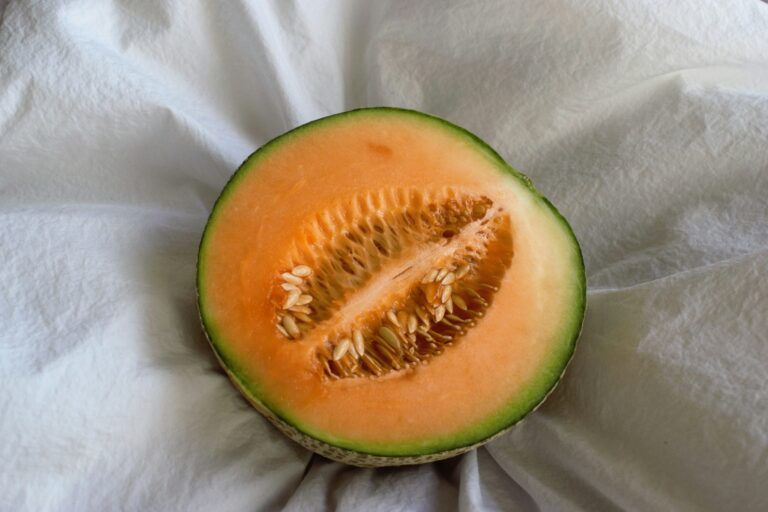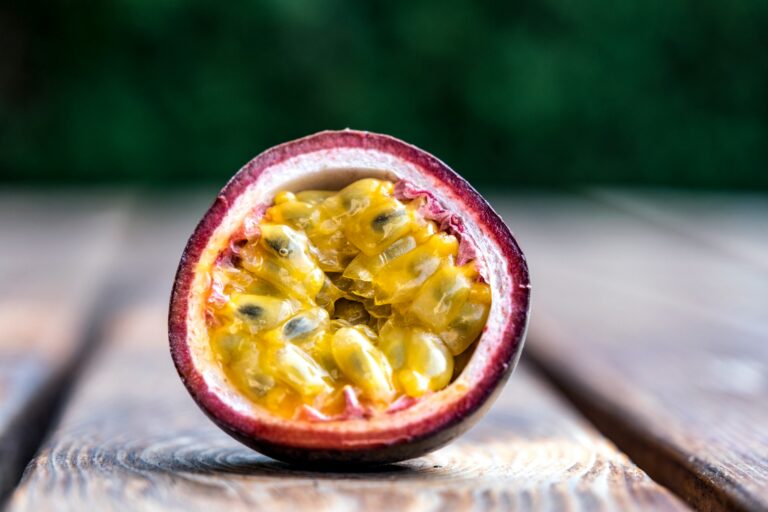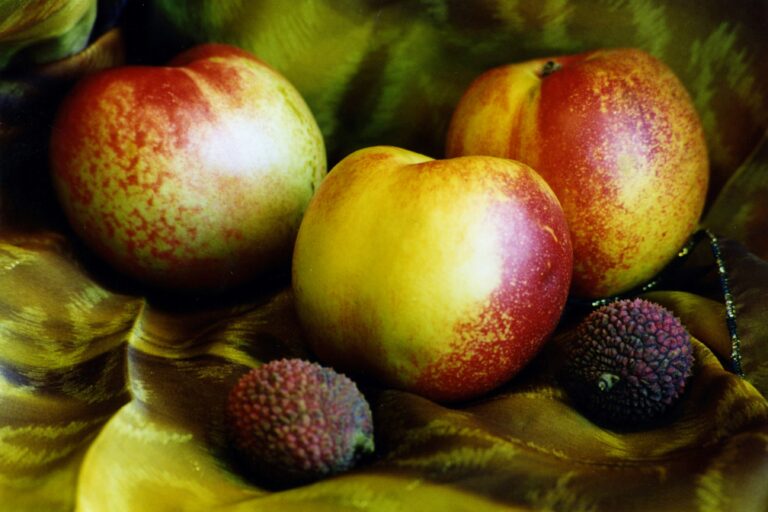The scientific name of the psyllium seed is Plantago ovata. Common names are Psyllium husk, Psyllium seeds, Plantago, and Ispaghula. Psyllium husk is the outer covering of Plantago ovata seeds. Plantago ovata’s name traces back to ancient medicinal uses. It was recognized for its mucilaginous properties in aiding digestion and is mentioned in Ayurvedic and Unani texts. Psyllium seed is native to Western Asia and the Mediterranean region.
Color: Psyllium seeds are typically brown or reddish-brown, while psyllium husk powder is light tan in color..The husks are rather white to yellow and therefore resemble oatmeal.
Shape: Ovoid-oblong” describes the shape of psyllium seeds as a combination of an oval (ovoid) shape and an elongated, rectangular shape (oblong). Seeds are slightly flattened and elongated with rounded ends, resembling a teardrop.
Size: Psyllium seeds are typically about 1 to 3 mm in length and 0.8 1.5 mm wide. Size may vary slightly due to natural variations.
Flavor: Psyllium is virtually tasteless and odorless, making it easy to incorporate into foods and beverages.
Nutrients
Psyllium seeds are a valuable source of dietary fiber, offering both soluble and insoluble types. Psyllium seeds contain essential nutrients, including dietary fiber, protein, healthy fats, iron, magnesium, and phosphorus. These components contribute to digestive health, heart function, and overall well-being.
One cup (147 grams) of cooked psyllium seed contains :
- Calories 200
- Fats 2 g
- Protein 9 g
- Carbohydrates 71 g
- Iron around 7.2 mg
- Magnesium 226 mg
- Phosphorus roughly 415 mg
| How to grow psyllium seed? |
Healthy Benefits of Psyllium Seed
Improved digestion
Better digestion and bowel regularity when consumed as food, psyllium seeds’ soluble fiber absorbs water in the digestive tract, forming a gel that softens stool and enhances peristalsis, supporting smooth bowel movements and regularity while aiding digestion
Reduced cholesterol
Psyllium seeds are a natural solution to lower cholesterol. Their soluble fiber forms a gel in the digestive system, binding to cholesterol and promoting its removal from the body. Regular intake can help reduce LDL cholesterol, supporting heart health. Incorporating psyllium seeds into your diet is a simple way to improve your cholesterol profile
Enhanced blood sugar
Control/Diminished cholesterol presence, Psyllium seeds contribute to better blood sugar control. Their soluble fiber slows carbohydrate absorption, preventing rapid spikes in glucose levels. This promotes stable blood sugar, reducing the risk of diabetes and aiding its management. Including psyllium seeds in your diet can support overall metabolic health and well-being
Satiety and weight management
Psyllium seeds offer a natural strategy for effective weight management. Their high soluble fiber content absorbs water, expanding in the stomach and promoting satiety. This leads to reduced hunger and controlled food intake, aiding weight loss goals. Including psyllium seeds in your diet can contribute to a healthier, more balanced approach to managing your weight
Maintains gut health
Psyllium seeds are a natural way to support gut health. Their soluble fiber acts as a prebiotic, nourishing beneficial gut bacteria. This fosters a balanced microbiome, aiding digestion, and preventing gastrointestinal issues. Incorporating psyllium seeds into your diet can contribute to a healthier, happier gut and overall well-being
Prevents constipation/Hinders constipation
Psyllium seeds are a reliable remedy for preventing constipation. Their soluble fiber absorbs water, softening stool and promoting regular bowel movements. By adding bulk to the stool, psyllium seeds ease passage through the digestive tract, ensuring comfort and maintaining digestive health. Incorporating psyllium seeds into your routine can effectively alleviate and prevent constipation
Supports a balanced microbiome
Psyllium seeds play a vital role in maintaining a balanced microbiome. Rich in soluble fiber, they provide nourishment for beneficial gut bacteria, fostering a diverse and healthy microbial community. By promoting a harmonious gut environment, psyllium seeds contribute to overall well-being and digestive health
Side Effects of Psyllium Seed
- Narrowing and obstruction of the gastrointestinal tract
- Can create serious gas
- May reduce mineral absorption from food
- May cause bloating
FAQ
What are psyllium seeds used for?
Psyllium(Ispaghula) is used to treat irritable bowel syndrome, hemorrhoids, and other digestive issues. It can help with both constipation and diarrhea.
Is it OK to eat psyllium seed?
Psyllium dosage varies depending on the product you’re taking. The dosage needs may change depending on why you’re taking psyllium. Typically, you can take the product with a full glass of water one to three times per day. Unless your doctor advises you otherwise, do not take more than the suggested dosage.






